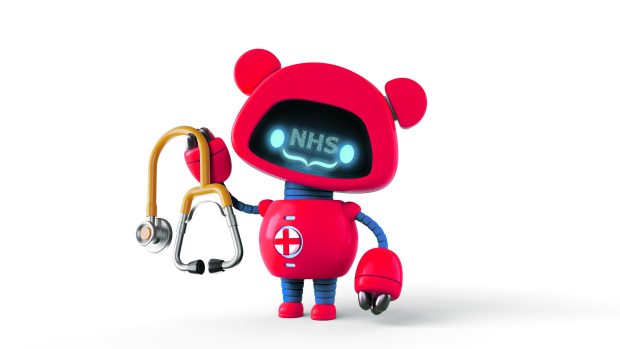
Thousands of people with mental health issues are currently being treated by AI chatbots due to the long NHS waiting lists.
Currently, NHS mental health services are treating an extra one million people in the UK annually versus six years ago, with over one million people stuck in limbo waiting to get access to the help they need.
Ella, 24, has recently suffered from a decline in her mental health. She became overly anxious and developed panic attacks over large changes that had taken place in her life, such as a job loss and a sudden break-up, and was also exhibiting symptoms of depression.
Ella isn’t alone – it is estimated that more than one in three people are affected by a mental health problem each year. The most common illnesses are depression and anxiety. Ella began researching ways to try to find help and came across AI therapy.
AI therapy
AI therapy has become a growing trend, where data and users’ behaviour patterns are analysed so a bot can ask about things, then offer advice and offer coping mechanisms.
AI has seen a massive growth in the past decade, with Prime Minister Keir Starmer recently saying his government had brought together AI leaders and tech would have “huge potential” for the country’s growth.
Apps such as Character.ai, Wysa and Youper have become popular tools for people, but the practice of using them remains controversial.
Character.ai is a language model that can impersonate anyone from Jon Bon Jovi to Winnie the Pooh, but can also become a psychologist character.
Afterwards the user is asked what attributes they want the bot to have and, from there, their own personal online therapist is available to talk to.
Another popular app used is Wysa. It offers 24/7 access and is available in 95 countries, providing immediate, evidence-based support whenever it is needed.
It has recently been announced how success AI therapy has been at improving mental health symptoms while patients wait for traditional therapy.
Currently, 31 NHS Talking Therapy providers have teamed up with AI-driven mental health platforms and are delivering results set to reshape how mental healthcare is delivered. According to Wysa, 89% of users say the app helps them feel better while they wait for more formal treatment, with one in three users also reporting seeing reliable change in anxiety symptoms.
Patients using Wysa
More than 36,000 of patients waiting for NHS referrals to mental health services are now using Wysa to manage their mental health while they wait for treatment and between treatment sessions.
John Tench, managing director of Wysa, said: “As the health secretary pushes for a tech-driven future to improve patient outcomes, Wysa’s partnership with NHS services is proving that digital innovation can not only streamline access to healthcare but also transform lives.
“Our tools are revolutionising the way mental healthcare is delivered in the NHS, helping people feel better faster and making it easier for clinicians to focus on what they do best – providing care. This partnership shows AI can truly change the game for healthcare.”
Eleanor Cappell, Head of Business and Transformation (Adult Mental Health), Coventry & Warwickshire Partnership Trust, said the app had enabled people to have digital access to local NHS talking therapies services.
She said: “The data Wysa collects is robust and informative, providing assurance this is an offer that is well used and compliments other routes into talking therapies.”
But these new apps do raise questions, as well as concerns.
Andrew McIntosh, professor of psychiatry at the Division of Psychiatry, Centre for Clinical Brain Science at Edinburgh University, outlined there were three opportunities that could come from these apps, such as having personalised treatment, early intervention and accessibility and efficiency.
He said: “It’s expensive to train therapists and if you could use their knowledge at training AI to deliver it then that, theoretically, could meet more people’s needs and it could reduce waiting lists and improve accessibility.”
But he also highlighted there were threats linked to the use of AI, such as data bias.
He said: “AI systems work because you give them a data set and they learn from that data set and then they apply the knowledge they have learned from that set to new people and then they can kind of tune it themselves and time goes along and they learn from the person in front of you.
“All data comes with bias and limitations so the AI therapy can only be as good as the data that it’s trained upon.
“There are biases that could be built in around particularly marginalised populations, so bias can be a bit of a limitation.
“I think a lot of people feel that once you know an app is a computer and not a therapist then you feel there is something creepy about it or you might feel it lacks empathy.
“The third disadvantage was around access to digital devices, people who have fewer resources are less likely to have access to digital devices and smartphones, also the elderly as well and people with disabilities.”
The Scottish Government said: “We are collaborating with our Innovation Hubs to gain a deeper understanding of Wysa so we can assess the potential opportunities for it in Scotland.
“We are also continuing to investigate how digital therapies can expand the range and accessibility of mental health support to further reduce the impact on our in-person services.”

Enjoy the convenience of having The Sunday Post delivered as a digital ePaper straight to your smartphone, tablet or computer.
Subscribe for only £5.49 a month and enjoy all the benefits of the printed paper as a digital replica.
Subscribe
